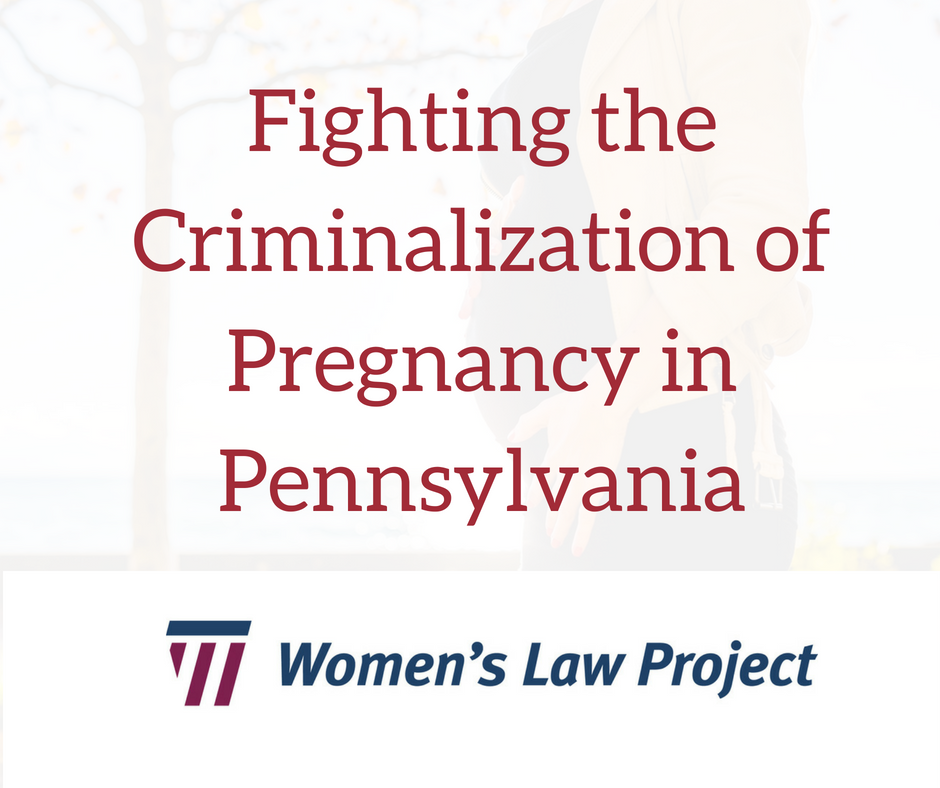 Relentless attacks on reproductive rights are colliding with the opioid epidemic in ways that seriously threaten both civil rights and public health.
Relentless attacks on reproductive rights are colliding with the opioid epidemic in ways that seriously threaten both civil rights and public health.
Attorneys at the Women’s Law Project just authored and filed an amicus (“friend-of-the-court”) brief in Commonwealth v. Dischman, a case in which the defendant was charged with a first-degree felony after she overdosed on opioids while pregnant. We filed the brief on behalf of 28 non-profit organizations and individuals concerned about the public health ramifications and far-reaching consequences of applying punitive sanctions against people who use drugs while pregnant.
As observed in an article in The Nation on this case: “It’s often noted that the victims of the opiate epidemic receive a degree of compassion not usually extended to drug users, but apparently that approach doesn’t extend to pregnant women.”
After delivering prematurely, defendant Kasey Dischman of Butler County went straight from the hospital to jail. Her bail was set at $500,000.
Our Argument
The relevant criminal statute has a clear nonliability provision protecting pregnant women from prosecution for conduct during pregnancy. For that reason, the charge was dismissed by the Court of Common Pleas in Butler County, but the prosecution filed an interlocutory appeal to the Pennsylvania Superior Court.
Our brief, which you can read here, supports Appellee Dischman and urges the Superior Court of Pennsylvania to affirm the order of the Court of Common Pleas dismissing the aggravated assault charge against Dischman.
We argue that interpreting Pennsylvania law to allow for the prosecution of pregnant women for aggravated assault in regard to alleged drug use has no basis in law and contradicts legislative intent.
In addition to the clear language of the statute, the lawmakers who authored the legislation repeatedly insisted the law is not intended to apply to pregnant women.
Serious Public Health Consequences
Beyond having no basis in law, prosecuting pregnant women for conduct alleged to harm their fetus undermines public health as well as maternal and fetal well-being. The practical effect of the Commonwealth’s novel reading of the relevant statute would be to drive pregnant women who use drugs out of the healthcare system and away from prenatal care.
It would also punish some pregnant women for failing to undergo or successfully complete treatment that is largely unavailable to them. According to a report issued last year by the Pennsylvania Legislature, there is a significant bed and provider shortage in Pennsylvania “despite a great demand for treatment.”
It also infringes upon a pregnant women’s privacy, and sets a precedent that could have far-reaching consequences beyond the context of drug use.
“The prosecution of Ms. Dischman represents exactly the wrong way to respond to people who use substances while pregnant,” said Women’s Law Project Fellow Margaret Zhang, who co-authored the brief. “Criminalizing the conduct deters them from seeking the specialized medical care they need to be healthy and maintain a healthy pregnancy.”
Disproportionate Negative Effect on Women of Color
It’s no coincidence that the criminalization of pregnant women’s conduct would have harshest impact on low-income women and women of color. The same populations that suffer the greatest risk of maternal and infant mortality face the worst barriers to both prenatal care and treatment for substance use disorders.
Here in Pennsylvania, Black infants are 2.4 times as likely to die before their first birthday, a finding that holds despite variations in income.
Trend: Pennsylvania is Targeting Pregnant Women with Substance Use Disorders
Attorneys at the Women’s Law Project are currently counseling another landmark civil case that will influence how we respond to pregnant women with substance use disorders.
At issue in that particular case, known as In Re: LJB, is whether or not a woman’s use of illegal drugs can constitute child abuse if, by using the illegal drugs, the woman intentionally, knowingly, or recklessly caused, or created a reasonable likelihood of, bodily injury to a child after birth, under Pennsylvania law.
Read more about that case here.
Just this week, the Pennsylvania House passed a bill that targets women with substance use disorders by re-installing a lifetime ban on Temporary Assistance for Needy Families (TANF) for people with certain drug convictions. Pennsylvania already had this ban, and lifted it in 2003 in part because it clearly targeted and punished low-income women, people with disabilities, and the elderly in ways that exacerbate poverty and addiction.
Learn more about House Bill 129 here, and get ready to speak up to oppose it when it goes to the Pennsylvania Senate for a vote.
The Women’s Law Project is a public interest law center in Pennsylvania devoted to advancing the rights of women and girls.
Sign up for WLP’s Action Alerts here. Follow us on twitter and like us on Facebook.
We are a non-profit organization. Please consider supporting equal rights for women and girls by making a one-time donation or scheduling a monthly contribution.


